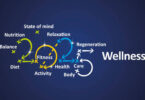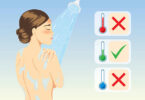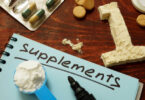
Heart complaints remain one of the biggest health pitfalls in the world at the moment. Numerous people ignore early signs because they look small at first. But if you catch these signs beforehand, you cover your heart and live longer. Croakers now stress the power of knowing what to watch for each day. However, learn how to read your body and act promptly if you want a healthy heart. A strong heart supports you in daily life and keeps your energy high. You don’t need medical training to spot these early signs. You just need to hear your body and act when the condition feels wrong.
Pay Attention to Chest Pain
Chest pain doesn’t always mean a heart attack, but there’s no way to ignore it. Numerous people feel miserliness or pressure in the chest when they walk or climb stairs. Some people feel a sharp pain that comes and goes quickly. However, check with a croaker soon if you feel pain frequently. Don’t stay for the pain to get worse or hope it goes away. A small chest pain moment can save you from bigger trouble hereafter.
Some people feel pain in the shoulders, arms, neck, or back. This pain feels like a weight pressing down. It may come with sweating or short breaths. These signs mean your heart needs help now. Listen to your body and never guess when pain strikes. Write down when the pain starts and how long it lasts. And what makes it stop? This record helps your croaker understand what happens inside your heart.
Watch for Shortness of Breath
Breathing trouble is another early sign that numerous people miss. However, pay close attention if you feel winded while resting or after small trouble. Numerous people suppose they feel tired from stress or lack of sleep. But shortness of breath can mean your heart works too hard to pump blood. This sign shows your heart struggles to supply enough oxygen to your body.
You may feel reeling or dizzy when your heart struggles. Some people feel like they might black out when standing up fast. However, don’t stay if you feel breathless frequently without a clear reason. Talk to a croaker and check your heart health before problems grow. Keep track of when you lose breath. This helps your croaker see patterns and find a stylish care plan for you.
Notice Swelling in Feet and Ankles
Your base and ankles show clear signs when your heart struggles to move blood. When your heart works inadequately, fluid builds up in your legs. Swelling around your feet, ankles, or lower legs may feel tight and look bloated. You may see socks leave deep marks on your skin at the end of the day.
You may also feel shoes fit tightly at the end of the day. Some people suppose this happens because they stand too long. But if the swelling stays or gets worse, check with your croaker. Swelling frequently means your heart or feet need help. Raise your legs when you rest and see if the swelling goes down. However, make an appointment with your croaker soon if the swelling stays.
Look for Extreme Fatigue

Feeling tired happens to everyone after a long day. But deep fatigue that stays for days means something else. However, watch out if you feel weak after simple tasks like walking to the kitchen. Don’t condemn age or busy days for deep frazzles that feel new.
Your heart pumps blood to give energy to your body. However, you feel drained all day if your heart cannot do its job. Some people feel too tired to do normal tasks they formerly enjoyed. However, it may be an early heart sign if rest doesn’t fix your tired feeling. Hear when your body feels tired indeed after a good sleep. Your heart may tell you it needs a checkup now.
Listen for Irregular Heartbeat
Your twinkle should stay steady indeed when you feel stressed out. Many people feel their heartbeat when disturbed or scared. But if your heart skips a beat or vibrates for no reason, take note. A strong, steady twinkle means your heart pumps blood without stress.
An irregular twinkle means your heart works too hard or out of meter. You may feel it pound while you sit still. Some people feel their heart flip or pause. However, see your croaker. If you feel these signs frequently. Numerous heart problems start with changes in the electrical activity. Write down when your heart feels strange. Bring this note when you visit your croaker for better checks.
Watch for Nausea or Cold Sweats
Some people feel stomach trouble when a heart complaint starts. You may feel sick, lose hunger, or feel like puking. Some people break into a cold sweat when they feel chest pain. However, take it seriously if this happens without reason. Your body may advise you in small ways before bigger problems hit.
Numerous people suppose stomach trouble comes from food or stress. But when nausea comes with chest pain or breathlessness, call for help. These signs frequently show up before a big heart problem happens. Keep track of nausea that doesn’t match your normal stomach issues. A quick check with your croaker keeps your heart safe.
Keep Up Regular Check-Ups

Your body addresses you in small ways each day. Doctors check your BP, cholesterol, and weight during visits. These figures show clear signs of unborn heart pitfalls. A simple blood test moment can save you from sanitarium visits hereafter.
Partake of any strange signs with your croaker indeed if they feel small. Small checks in the moment save you from bigger problems hereafter. Numerous people avoid the croaker because they sense bad news. But early action means simple treatments and lower stress later. Figure out trust with your broker so you feel safe participating in your enterprises. Good care starts with clear, honest addresses.
Conclusion
Heart complaints don’t start overnight. Your body gives you clear signs if you hear with care. You cover yourself when you learn what each sign means and act presto. Chest pain, breath loss, swelling, fatigue, irregular twinkle, and nausea each matter. No way to guess or ignore these warnings. Write down what you feel and talk about it with your family, too.
Make heart checks part of your life. Eat better food, walk each day, and sleep well to help your heart. Meet with your croaker for regular checks and partake in what you feel. When you know how to describe early signs of heart complaints, you take control of your life. A strong heart means a strong future for you and your loved ones. Small moments make for long, healthy times ahead. Hearken to your body, care for your heart, and live completely every day.






